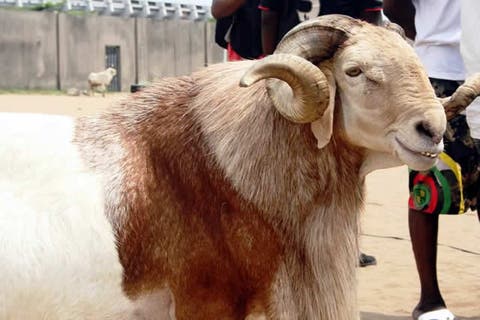Quick Summary:
- Livestock prices in Abuja have doubled ahead of Eid-el-Kabir 2025, with rams now selling for between ₦150,000 and ₦1 million, depending on size.
- Traders blame the spike on insecurity and reduced cross-border supply, especially from Niger Republic and other northern regions affected by conflict.
- Buyers are scaling back their Sallah celebrations, with many unable to afford even a single ram due to the steep price increases.
- Experts link the crisis to worsening insecurity, climate change, and poor infrastructure in Nigeria’s livestock-producing regions, calling for urgent government intervention.
As Muslims across Nigeria prepare for the Eid-el-Kabir celebrations, many livestock buyers and sellers in Abuja are voicing frustration over a sharp increase in the price of rams and other sacrificial animals. Traders largely blame the hike on rising insecurity and a dwindling livestock supply.
Food Prices Drop, Livestock Prices Soar
A visit to major livestock hubs in the Federal Capital Territory (FCT), including the well-known Zuba market, reveals a surprising trend. While the prices of staple foods like rice, beans, onions, and tomatoes have slightly declined in recent weeks, the cost of livestock has surged dramatically.
Cross-Border Supply Worsens
Ahmed Maikudi, a livestock dealer at Zuba market, told Nairametrics that fewer rams are being supplied to Nigerian cities this year. He attributed the decline to reduced imports from neighbouring countries such as Niger Republic.
“We used to import large numbers of animals from Niger Republic and other nearby countries. But this year, we’re relying solely on local household livestock farmers, which is not enough,” he said.
According to Maikudi, many traders are leaving the business altogether for more profitable ventures.
Prices Nearly Double Across the Board
Maikudi explained that prices have nearly doubled compared to last year. A medium-sized ram that previously sold for around ₦200,000 now costs up to ₦400,000. Here’s a breakdown:
- Small rams: ₦150,000 – ₦190,000
- Medium rams: ₦200,000 – ₦250,000
- Large rams: ₦350,000 – ₦1,000,000
Traders and Buyers Struggle
Along the Nyanya-Abuja Expressway, roadside livestock trader Abdullahi shared similar concerns. He placed the current price range for rams between ₦200,000 and ₦700,000.
“If you’re looking for a good-sized ram for ₦100,000, maybe after Sallah,” he said, smiling. “But certainly not now.”
Abdullahi also noted a drop in patronage.
“In the past week, I’ve sold fewer than 10 animals,” he added.
Some buyers are already adjusting their Sallah plans due to high costs.
- UAC of Nigeria Plc to Acquire Chivita/Hollandia from The Coca-Cola Company
- Nigeria’s E-Payment Transactions Hit Record N284.9 Trillion in Q1 2025
- ALCB Fund Raises $30M in Groundbreaking 10-Year Bond Backed by Major UK Investor
- Stock Market Thrives Under Tinubu—Best Presidential Performance Since 1999
- ABU Secures €5 Million from EU to Launch AI-Powered Microscope for Parasitic Disease Detection
Buyers Scale Back Celebrations
Adekunle Ajayi, who normally buys livestock in Abuja before heading to Oyo State for the festivities, said he spent about ₦200,000 last year on three animals—including two goats.
“This year, that same amount can barely buy one decent ram,” he said. “It won’t even cover transportation to Ibadan.”
Contrast With Ramadan Trends
Interestingly, this sharp price hike differs from what was seen during Ramadan. At that time, markets in Wuse, Garki, and Utako experienced falling prices for staple food items, offering some relief to fasting residents.
Experts Link High Prices to Insecurity
Experts say worsening security is a major reason behind the livestock price surge.
Bosun Alebiosu, a research fellow at the French Institute for Research in Africa (IFRA), said:
“We underestimate how much security affects the economy. With increased farmer-herder clashes and a resurgence of Boko Haram and banditry in the North-East, both food and livestock production have been hit hard.”
He called on the government to make security in farming areas a national priority.
Dr. Abimbola Adegoke, an agricultural extension expert at the University of Abuja, added that most of Nigeria’s livestock is raised in the North using extensive pastoral systems.
“Climate change, insecurity, and conflicts have made things worse,” she said. “There are fewer animals available and limited movement to southern markets. Naturally, when supply drops, prices go up.”
Uncertain Outlook as Eid Approaches
With Eid-el-Kabir just days away, both sellers and buyers are hoping for a last-minute drop in prices. But with insecurity and economic pressure still looming, many fear that relief might not come in time.



















Leave a Reply